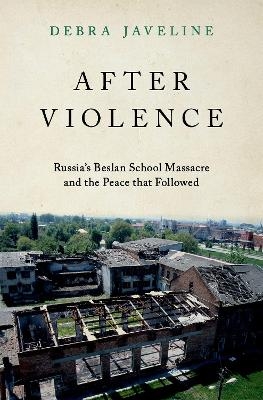
After Violence
Oxford University Press Inc (Verlag)
978-0-19-768334-7 (ISBN)
Starting on September 1, 2004, and ending 53 hours later, Russia experienced its most appalling act of terrorism in history, the seizure of School No. 1 in Beslan, North Ossetia. Approximately 1,200 children, parents, and teachers were taken hostage. Over 330 were killed, hundreds more seriously wounded, and all severely traumatized. When does such violence fuel greater acceptance of retaliatory violence, and when does violence fuel nonviolent participation in politics?
In After Violence, Debra Javeline addresses this crucial question by exploring the motivations behind individual responses to violence. The mass hostage taking was widely predicted to provoke a spiral of retaliatory ethnic violence in the North Caucasus, where the act of terror was embedded in a larger context of ongoing conflict between Ossetians, Ingush, and Chechens. Politicians, journalists, victims, and other local residents asserted that vengeance would come. Instead, the hostage taking triggered unprecedented peaceful political activism on a scale seen nowhere else in Russia. Beslan activists challenged authorities, endured official harassment, and won a historic victory against the Russian state in the European Court of Human Rights. Using systematic surveys of 1,098 victims (82%) and 2,043 nearby residents, in-depth focus groups, journalistic accounts, investigative reports, NGO reports, and prior scholarly research, Javeline provides insights into this unexpected but favorable outcome.
The first book to analyze the aftermath of large-scale violence with evidence from almost all direct victims, After Violence offers novel findings about the influence of anger, prejudice, alienation, efficacy, and other variables on post-violence behavior.
Debra Javeline is Associate Professor in the Department of Political Science at the University of Notre Dame and a fellow of the Kroc Institute for International Peace Studies, Kellogg Institute for International Studies, Nanovic Institute for European Studies, Russian and East European Studies Program, and Environmental Change Initiative. Her research interests include mass political behavior, survey research, Russian politics, sustainability, environmental politics, and climate change. She focuses on the decisions of ordinary citizens, whether in response to violence or climate impacts, and she is currently exploring coastal homeowner motivations to take action to reduce their risk from rising seas, hurricanes, and other hazards.
Tables
Figures
Acknowledgments
Glossary of individuals
Introduction: Peace after violence in Beslan
Part I: The Beslan school hostage taking
Chapter 1: Grievances against ethnic rivals
Chapter 2: Political grievances
Chapter 3: The surprisingly nonviolent aftermath
Chapter 4: The surprisingly political aftermath
Part II: Why politics and nonviolence?
Chapter 5: Anger and other emotions
Chapter 6: Ethnic prejudice
Chapter 7: Political alienation and blame
Chapter 8: Social alienation versus social support
Chapter 9: Self-efficacy and political efficacy
Chapter 10: Biography (demographics, prior harm, and prior activism)
Chapter 11: A portrait of political activists and violent retaliators
Part III: Generalizing findings from Beslan victims
Chapter 12: Should results apply to nonvictims?
Chapter 13: Should results apply to victims in other places and times?
Conclusion: Peace after violence
Appendix A: Chronology of activities after the Beslan school hostage taking
Appendix B: Survey and focus group methodologies
References
Index
| Erscheinungsdatum | 18.03.2023 |
|---|---|
| Zusatzinfo | 12 b/w photographs; 29 b/w line drawings; 53 tables; 1 map |
| Verlagsort | New York |
| Sprache | englisch |
| Maße | 237 x 164 mm |
| Gewicht | 1002 g |
| Themenwelt | Sozialwissenschaften ► Politik / Verwaltung ► Europäische / Internationale Politik |
| ISBN-10 | 0-19-768334-7 / 0197683347 |
| ISBN-13 | 978-0-19-768334-7 / 9780197683347 |
| Zustand | Neuware |
| Haben Sie eine Frage zum Produkt? |
aus dem Bereich


